
We drink them, we enjoy the buzz and the socializing with our friends and family. “Alcohol” is that magical and somewhat mysterious ingredient in our beers, wine, vodka martinis, and after dinner liqueurs.
What exactly is Alcohol? We drink it, we rub it on sore muscles, and use it to cleanse cuts. Is there a difference between these types? Why is one safe to drink and not the other?
There are actually 6 kinds of alcohol and if you happen to consume the wrong one you could wind up dead. Let’s take a look:
(1) Denatured: 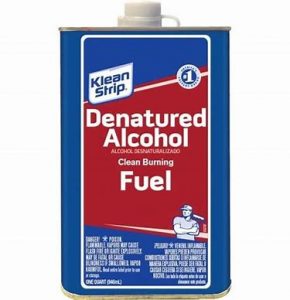 This is ethanol that has added ingredients making it unfit to drink.
This is ethanol that has added ingredients making it unfit to drink.
(2) Fuel Grade Ethanol: 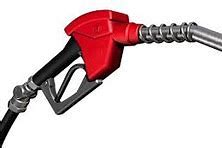 This is the fuel you put in the gas tank of your car. Don’t think you want to drink this one.
This is the fuel you put in the gas tank of your car. Don’t think you want to drink this one.
(3) Isopropl: 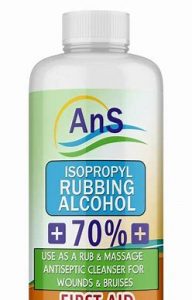 This is used as a solvent in fuel, and in small amounts as a surface disinfectant. It’s the one in the bottle under your bathroom sink used to cleanse cuts and other wounds.
This is used as a solvent in fuel, and in small amounts as a surface disinfectant. It’s the one in the bottle under your bathroom sink used to cleanse cuts and other wounds.
(4) Methanol: 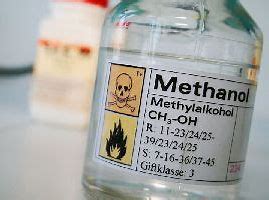 Here’s your wood alcohol…highly toxic…used as a solvent , fuel and to prevent water-based liquids from freezing.
Here’s your wood alcohol…highly toxic…used as a solvent , fuel and to prevent water-based liquids from freezing.
(5) Ethanol (Industrial): 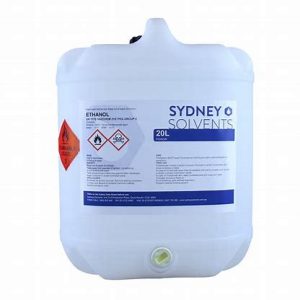 This one is produced for non-beverage uses which may contain additives…toxic to humans
This one is produced for non-beverage uses which may contain additives…toxic to humans
(6) Jackpot! This Ethanol (C2H6O) 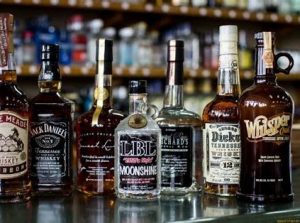 is used to make alcoholic drinks. Beer, Wine and Spirits all contain it. This is the only one that is “safe” to drink.
is used to make alcoholic drinks. Beer, Wine and Spirits all contain it. This is the only one that is “safe” to drink.
Alcoholic drinks fall into 3 broad categories:
Beers 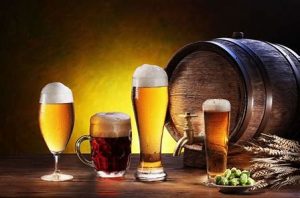 usually made from sprouted barley and roasted into malt, cooked with water, fermented with yeast and flavored with the flowers from the Hop plant.
usually made from sprouted barley and roasted into malt, cooked with water, fermented with yeast and flavored with the flowers from the Hop plant.
Wines 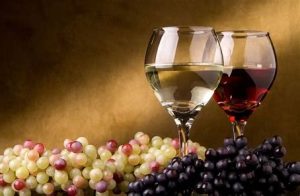 made from grapes and sometimes other fruits that are juiced and fermented.
made from grapes and sometimes other fruits that are juiced and fermented.
Distilled Spirits 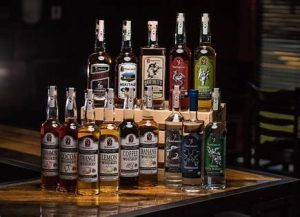 made from grains, fruit or other sugar sources that are fermented and distilled by heating and cooling to get alcohol.
made from grains, fruit or other sugar sources that are fermented and distilled by heating and cooling to get alcohol.
All of these drinks start with fermentation…the natural result of yeast digestion of the sugars in fruit, cereal grains or other starches. Two products are produced: 1) Ethanol; and 2) Carbon Dioxide.
Now that we know what it is, let’s see if these popular social drinks can be counted toward our daily fluid intake. Most important to remember is that alcohol is a diuretic which means it causes your body to remove fluids from your bloodstream through your renal system (kidneys, ureters, and bladder) at a much quicker rate than other liquids.
 Warning: If you don’t drink water with an alcoholic beverage you can become dehydrated quickly.
Warning: If you don’t drink water with an alcoholic beverage you can become dehydrated quickly.
What are some ways that it can dehydrate us?
*Drinking on an Empty Stomach…allows the liquid and alcohol to pass through the stomach lining and small intestine, and into the bloodstream within minutes.
*Buildup in the Bloodstream…from there it can go anywhere in your body. When it reaches the brain, alcohol can impair judgment and lead to a serious drunken state. If it reaches the lungs it can be released when you exhale- hence the reason for breathalyzers being used by police officers if they stop you on the road. It measures BAC (blood alcohol concentration)…the amount of alcohol in your bloodstream.
*This one is key (in my humble opinion)…alcohol reduces how much Vasopressin  your body makes. This is an antidiuretic hormone which causes the body to hold onto water, limiting how much urine the kidneys make. Suppression of this hormone increases the diuretic effect causing dehydration. Water is flushed out much faster than alcohol is processed.
your body makes. This is an antidiuretic hormone which causes the body to hold onto water, limiting how much urine the kidneys make. Suppression of this hormone increases the diuretic effect causing dehydration. Water is flushed out much faster than alcohol is processed.
Dehydration can have serious effects on our bodies and I’ll let you read about it in my sources at your convenience. I am concerned here about whether alcoholic drinks can actually hydrate us.
Bottom Line: Based on what I’ve learned I advise not to count alcoholic drinks toward your daily fluid intake. However, any water you drink along with that beer or wine will help. I was not able to get a clear sense of how many drinks in one sitting would directly cause serious dehydration but since alcohol suppresses Vasopressin I would be very careful about quantity.
 Tip: Listen to your body – not to your friends or anyone else. Don’t let anyone intimidate you into drinking more than you know you can handle or want to try to handle. It’s about personal responsibility…and self-love.
Tip: Listen to your body – not to your friends or anyone else. Don’t let anyone intimidate you into drinking more than you know you can handle or want to try to handle. It’s about personal responsibility…and self-love.
http://www.responsibledrinking.org/what-are-you-drinking/what-is-an-alcohol-beverage/
https://www.healthline.com/health/does-alcohol-dehydrate-you#in-the-body

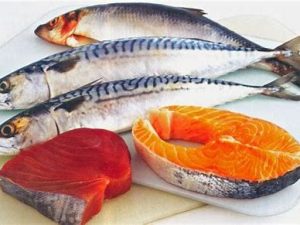 I liked tuna sandwiches as a child…loved them with celery chunks. As an adult…not so much…in fact I’ve tried to like tuna but don’t like the fattening mayo and the high sodium content…I went through a phase of eating lots of canned salmon…too much hassle separating the bones from the fish…having more luck with canned boneless and skinless sardines in oil. I put them in salads with lots of french dressing. Not too bad…
I liked tuna sandwiches as a child…loved them with celery chunks. As an adult…not so much…in fact I’ve tried to like tuna but don’t like the fattening mayo and the high sodium content…I went through a phase of eating lots of canned salmon…too much hassle separating the bones from the fish…having more luck with canned boneless and skinless sardines in oil. I put them in salads with lots of french dressing. Not too bad…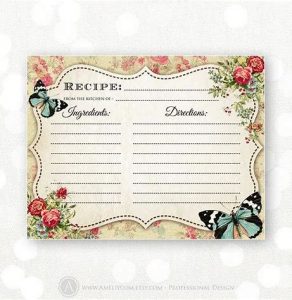 Turkey Burger with Sardines
Turkey Burger with Sardines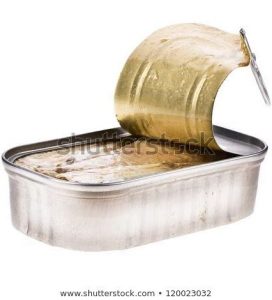
![]()

 Moo!
Moo! 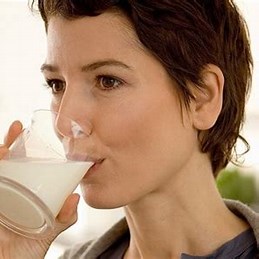
 Tip: If milk is too “sweet” for you, trying sprinkling a little salt into your glass. I use Himalayan Pink Salt and it adds a little counterbalance to the flavor.
Tip: If milk is too “sweet” for you, trying sprinkling a little salt into your glass. I use Himalayan Pink Salt and it adds a little counterbalance to the flavor.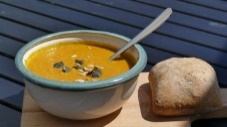 Just a quick reminder to count that soup as part of your daily intake. Whether it’s water based or milk based, it still counts. (Milk is 88% water!)
Just a quick reminder to count that soup as part of your daily intake. Whether it’s water based or milk based, it still counts. (Milk is 88% water!)
 This is ethanol that has added ingredients making it unfit to drink.
This is ethanol that has added ingredients making it unfit to drink. This is the fuel you put in the gas tank of your car. Don’t think you want to drink this one.
This is the fuel you put in the gas tank of your car. Don’t think you want to drink this one. This is used as a solvent in fuel, and in small amounts as a surface disinfectant. It’s the one in the bottle under your bathroom sink used to cleanse cuts and other wounds.
This is used as a solvent in fuel, and in small amounts as a surface disinfectant. It’s the one in the bottle under your bathroom sink used to cleanse cuts and other wounds. Here’s your wood alcohol…highly toxic…used as a solvent , fuel and to prevent water-based liquids from freezing.
Here’s your wood alcohol…highly toxic…used as a solvent , fuel and to prevent water-based liquids from freezing. This one is produced for non-beverage uses which may contain additives…toxic to humans
This one is produced for non-beverage uses which may contain additives…toxic to humans is used to make alcoholic drinks. Beer, Wine and Spirits all contain it. This is the only one that is “safe” to drink.
is used to make alcoholic drinks. Beer, Wine and Spirits all contain it. This is the only one that is “safe” to drink. usually made from sprouted barley and roasted into malt, cooked with water, fermented with yeast and flavored with the flowers from the Hop plant.
usually made from sprouted barley and roasted into malt, cooked with water, fermented with yeast and flavored with the flowers from the Hop plant.  made from grapes and sometimes other fruits that are juiced and fermented.
made from grapes and sometimes other fruits that are juiced and fermented. made from grains, fruit or other sugar sources that are fermented and distilled by heating and cooling to get alcohol.
made from grains, fruit or other sugar sources that are fermented and distilled by heating and cooling to get alcohol. Warning: If you don’t drink water with an alcoholic beverage you can become dehydrated quickly.
Warning: If you don’t drink water with an alcoholic beverage you can become dehydrated quickly. your body makes. This is an antidiuretic hormone which causes the body to hold onto water, limiting how much urine the kidneys make. Suppression of this hormone increases the diuretic effect causing dehydration. Water is flushed out much faster than alcohol is processed.
your body makes. This is an antidiuretic hormone which causes the body to hold onto water, limiting how much urine the kidneys make. Suppression of this hormone increases the diuretic effect causing dehydration. Water is flushed out much faster than alcohol is processed.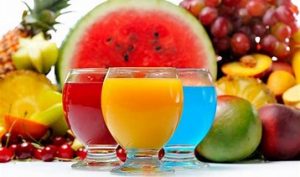
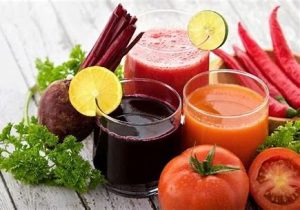
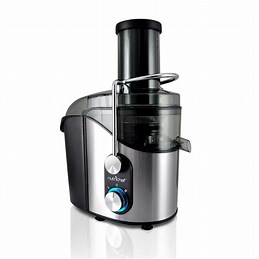 So much pulp was stuck inside and so little juice came out. It was a mess. I have a blender which some experts recommend as a better choice, but I wouldn’t try to blend carrots in it. I’m liable to have it explode in my face or burn out the motor.
So much pulp was stuck inside and so little juice came out. It was a mess. I have a blender which some experts recommend as a better choice, but I wouldn’t try to blend carrots in it. I’m liable to have it explode in my face or burn out the motor. 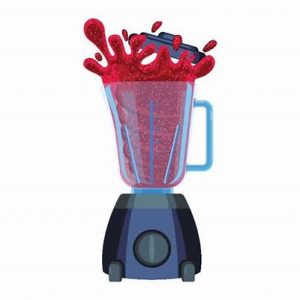
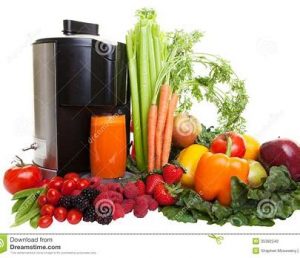
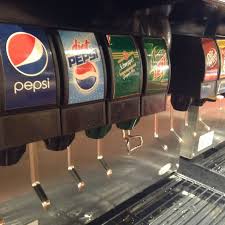 I researched several websites trying to find some good things to say about soda. Unfortunately, I came up short. Not being a soda drinker (since childhood days) I had to rely on the “experts” to provide input on this topic.
I researched several websites trying to find some good things to say about soda. Unfortunately, I came up short. Not being a soda drinker (since childhood days) I had to rely on the “experts” to provide input on this topic. One source said this: “A can of soda may seem to quench your thirst but the caffeine in most soft drinks is a diuretic (I’ve explained this before) which can cause dehydration.” The sugar and sodium in soft drinks can also lead to dehydration. “On top of that, when drinking soda becomes a regular habit, many people end up replacing vital water intake with soda consumption.”
One source said this: “A can of soda may seem to quench your thirst but the caffeine in most soft drinks is a diuretic (I’ve explained this before) which can cause dehydration.” The sugar and sodium in soft drinks can also lead to dehydration. “On top of that, when drinking soda becomes a regular habit, many people end up replacing vital water intake with soda consumption.”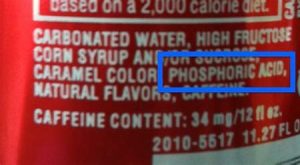 The damage to our bodies from soda occurs little by little over time..”Phosphorus, citrus, malic and tartaric acids are all added to soft drinks.” The damage begins immediately with the slow erosion of tooth enamel, moving on to the digestive system where they really do serious damage. Our stomach is the victim here through an irritated lining. Other problems can be heartburn and acid reflux, just to name a few problems.
The damage to our bodies from soda occurs little by little over time..”Phosphorus, citrus, malic and tartaric acids are all added to soft drinks.” The damage begins immediately with the slow erosion of tooth enamel, moving on to the digestive system where they really do serious damage. Our stomach is the victim here through an irritated lining. Other problems can be heartburn and acid reflux, just to name a few problems.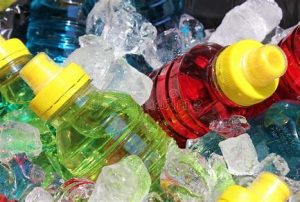 We all need to replenish our bodies with the water we lose every day through normal activity. However, a sports drink might be a better choice during and after intense exercise to replenish minerals lost through sweat.
We all need to replenish our bodies with the water we lose every day through normal activity. However, a sports drink might be a better choice during and after intense exercise to replenish minerals lost through sweat.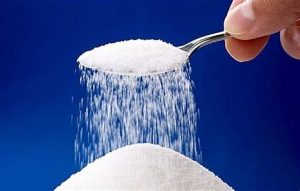 They also include sugar. This is added to provide immediate energy. The kind of sugar added varies with the manufacturer. It should come from glucose, sucrose, and/or fructose — all of which are easily and quickly absorbed. It shouldn’t be carbonated, as the bubbles can lead to an
They also include sugar. This is added to provide immediate energy. The kind of sugar added varies with the manufacturer. It should come from glucose, sucrose, and/or fructose — all of which are easily and quickly absorbed. It shouldn’t be carbonated, as the bubbles can lead to an 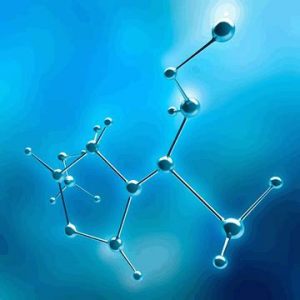 Sports drinks might also include amino acids to help with muscle recovery (again…what’s the source?) These are the building blocks of protein. Complete proteins have 8 essential amino acids so the question is: “What have they added to that drink”? Throwing in a few to make it look good will not add much to your health.
Sports drinks might also include amino acids to help with muscle recovery (again…what’s the source?) These are the building blocks of protein. Complete proteins have 8 essential amino acids so the question is: “What have they added to that drink”? Throwing in a few to make it look good will not add much to your health. In choosing a sports drink there are 2 important points to consider:
In choosing a sports drink there are 2 important points to consider: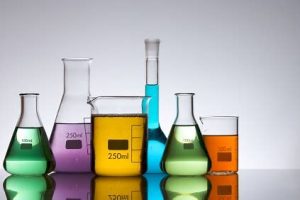 Does that drink contain dyes and food additives? Powerade Fruit Punch, for example, contains “glycerol ester of rosin.” Apparently that is a
Does that drink contain dyes and food additives? Powerade Fruit Punch, for example, contains “glycerol ester of rosin.” Apparently that is a 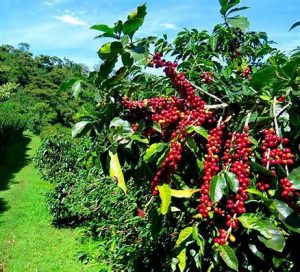 What is this concoction we call coffee? Millions of us drink it every morning so we can meet the day. We know it wakes us up and we love the taste…but what do we really know about it?
What is this concoction we call coffee? Millions of us drink it every morning so we can meet the day. We know it wakes us up and we love the taste…but what do we really know about it? The earliest evidence of coffee drinking or knowledge about the coffee tree dates back to the 15th century in the Sufi monasteries of Yemen. It soon spread to Mecca and Cairo, the rest of the Middle East, Europe and eventually to America in the 18th century. Thanks to the American Revolution and the Boston Tea Party Americans switched to coffee from tea which was considered unpatriotic. So, I guess you can thank our Founding Fathers for their efforts in making your favorite morning brew so popular today.
The earliest evidence of coffee drinking or knowledge about the coffee tree dates back to the 15th century in the Sufi monasteries of Yemen. It soon spread to Mecca and Cairo, the rest of the Middle East, Europe and eventually to America in the 18th century. Thanks to the American Revolution and the Boston Tea Party Americans switched to coffee from tea which was considered unpatriotic. So, I guess you can thank our Founding Fathers for their efforts in making your favorite morning brew so popular today.
 “Moderate” amounts of coffee enjoyed daily will not cause dehydration. Common sense and being aware of any physical discomfort you experience like any problems you have sleeping are good guidelines. You can make any adjustments you deem necessary, like drinking less, or drinking earlier in the day so you don’t have any trouble with sleep. Drinking more water will help too.
“Moderate” amounts of coffee enjoyed daily will not cause dehydration. Common sense and being aware of any physical discomfort you experience like any problems you have sleeping are good guidelines. You can make any adjustments you deem necessary, like drinking less, or drinking earlier in the day so you don’t have any trouble with sleep. Drinking more water will help too.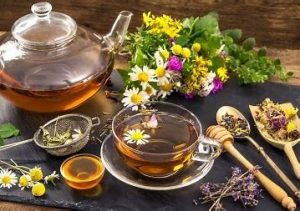 Herbal Tea is made from steeping herbs, spices, fresh or dried flowers, fruit, leaves, seeds or roots in boiling water for a few minutes. The tea is strained and sweetened if desired. Don’t have the time or patience for this approach?
Herbal Tea is made from steeping herbs, spices, fresh or dried flowers, fruit, leaves, seeds or roots in boiling water for a few minutes. The tea is strained and sweetened if desired. Don’t have the time or patience for this approach?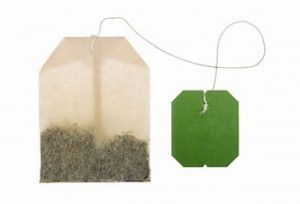
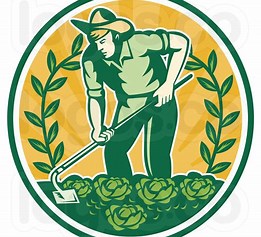 Herbal teas are considered a food crop in the U.S. and may contain pesticides or heavy metals. If you are unsure about what to buy, see if you can get organic herbal teas.
Herbal teas are considered a food crop in the U.S. and may contain pesticides or heavy metals. If you are unsure about what to buy, see if you can get organic herbal teas.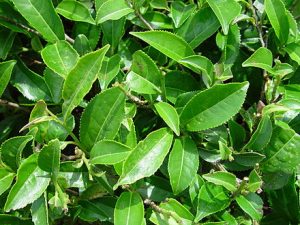 According to Wikipedia it’s “an aromatic beverage commonly prepared by pouring hot or boiling water over cured leaves of the Camellia sinensis, an evergreen shrub (bush) native to East Asia. It originated in southeast Asia, specifically around the intersection of
According to Wikipedia it’s “an aromatic beverage commonly prepared by pouring hot or boiling water over cured leaves of the Camellia sinensis, an evergreen shrub (bush) native to East Asia. It originated in southeast Asia, specifically around the intersection of 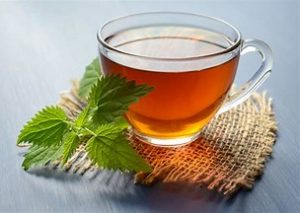 Tea initially came to America in the 1600’s with the Dutch who started a settlement in New Amsterdam.
Tea initially came to America in the 1600’s with the Dutch who started a settlement in New Amsterdam.